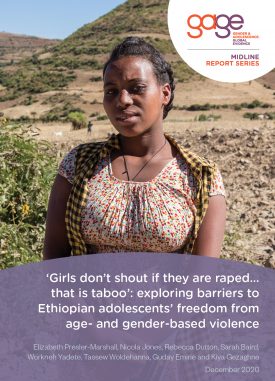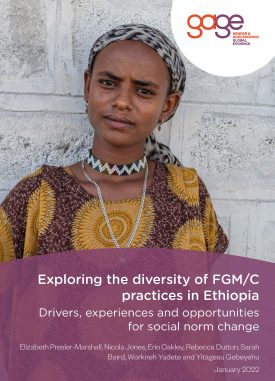This article discusses the piloting of vignette research tools within focus group discussions involving 34 adolescent girls aged 1519 in Rwanda. The purpose of the research was to elucidate norms around sexual violence. Through a ‘collective capabilities’ lens, which focuses on ways to move beyond change at the individual level towards empowerment processes that benefit all girls, we reflect on the opportunities this methodological tool offers for expanding girls’ understanding of the norms that enable sexual violence, and the context-specific ways they can respond. After providing an overview of the vignettes exercise and the way in which the vignette on sexual violence was used with participants, we present girls’ accounts of sexual violence drawn from discussions based around the vignettes and our analysis of these findings. We find that gendered social norms around gender, sexuality, age, and responsibility for safety that apportion blame to girls who experience sexual violence play a role in preventing girls from using reporting mechanisms. Although girls have a strong sense of this being unfair, they realise they must also find ways to navigate these norms to avoid being blamed for their own victimisation. Based on this data, we suggest that the use of vignettes in the context of qualitative longitudinal research offers insights into norms about the drivers and causes of sexual violence that are otherwise challenging to elicit because of the sensitivity of the topic. We find that vignettes can be an empowering tool, both in raising ‘unspoken’ issues girls face and in creating the opportunity for girls to collectively work out pathways to accountability in a context where sexual violence is widespread but underreported. However, strategies to address sexual violence must account for barriers to reporting that include the social implications for girls of identifying perpetrators and exposing themselves to stigma and blame.
Suggested citation:
Pincock, K., Verhoeven, D., Jones, N., & Isimbi, R. (2023). “‘They Say it was Her Fault… This is Not True!’ Using Vignettes With Adolescent Girls to Collectively Address Norms About Sexual Violence.” International Journal of Qualitative Methods, 22. (https://doi.org/10.1177/16094069221147447)


